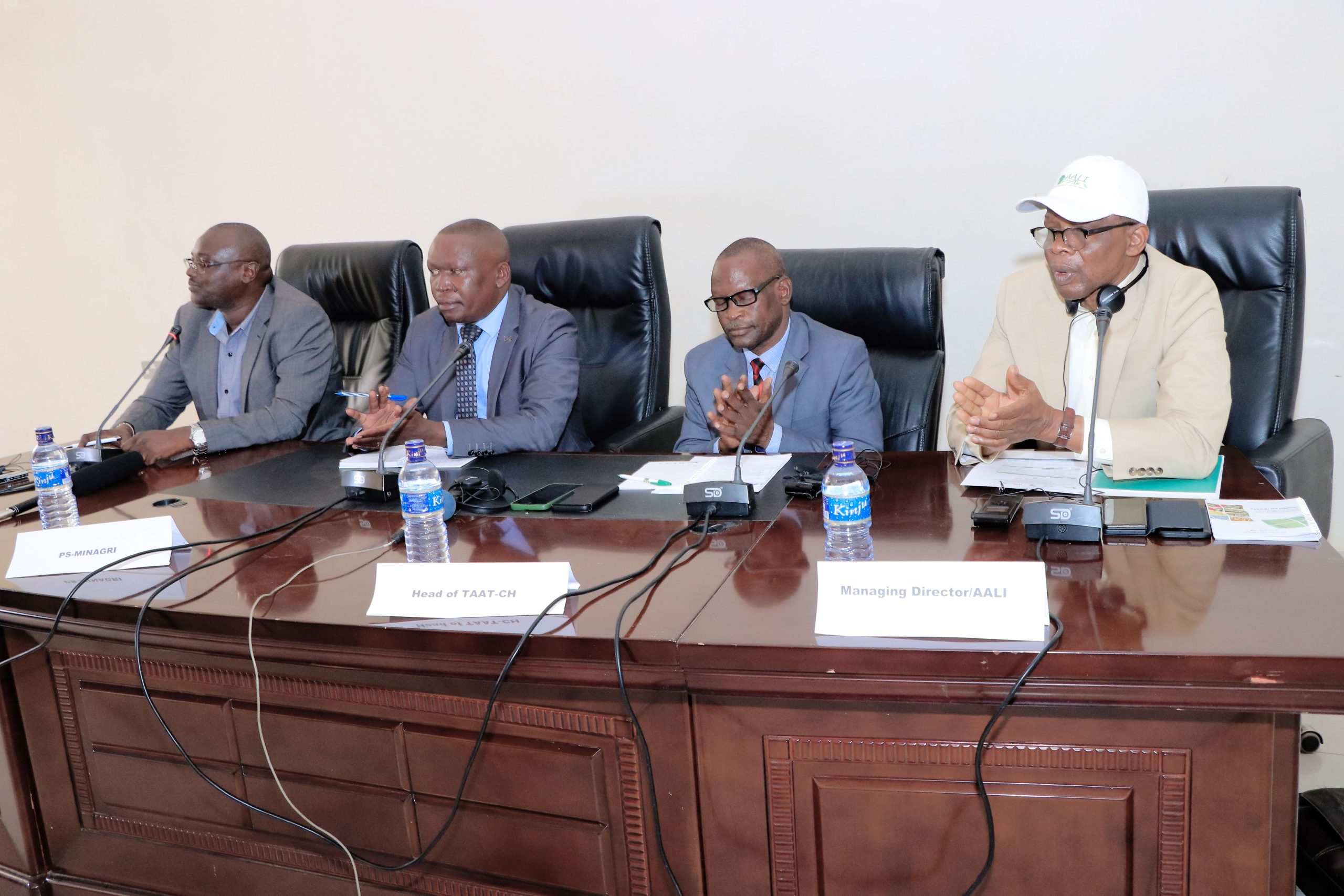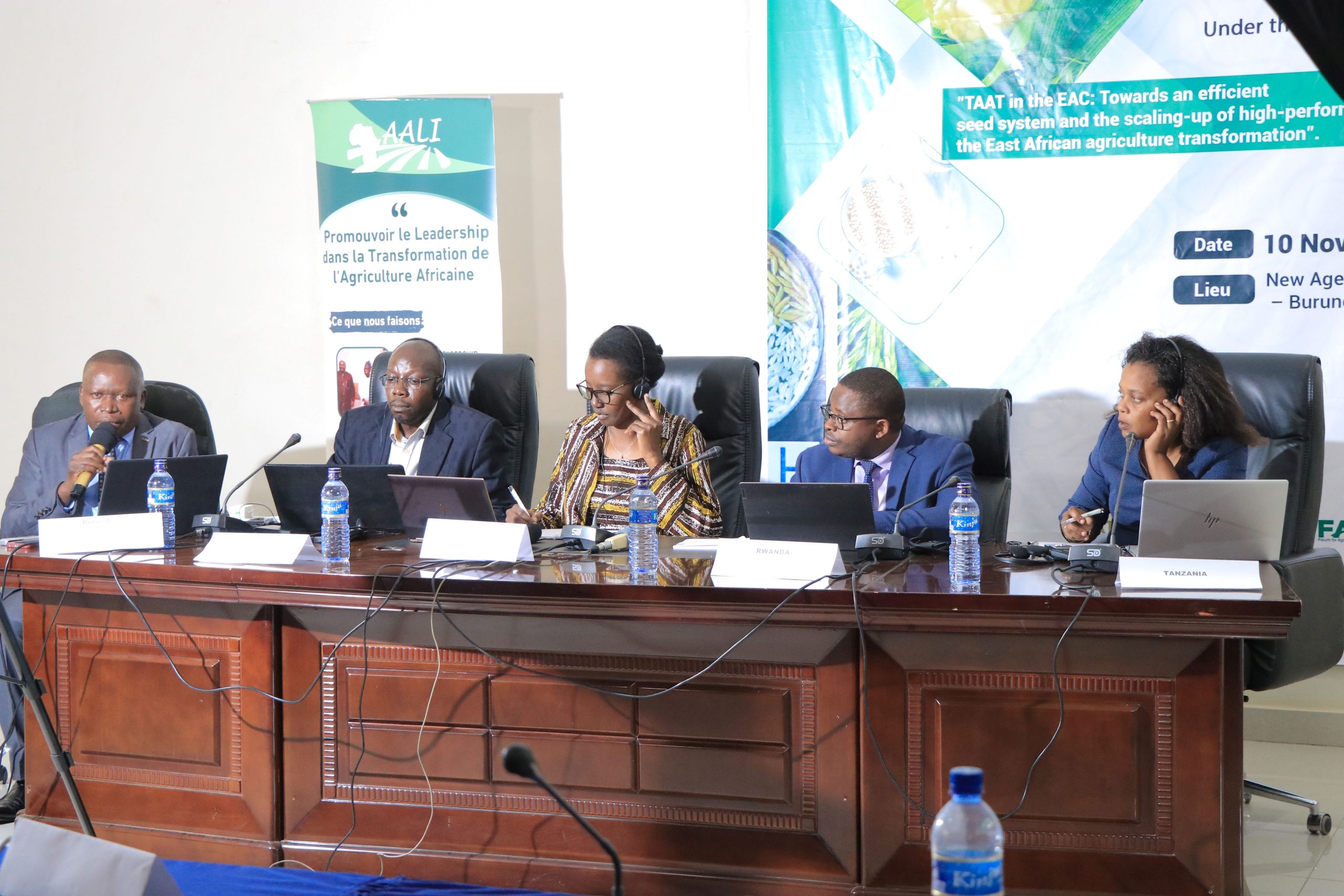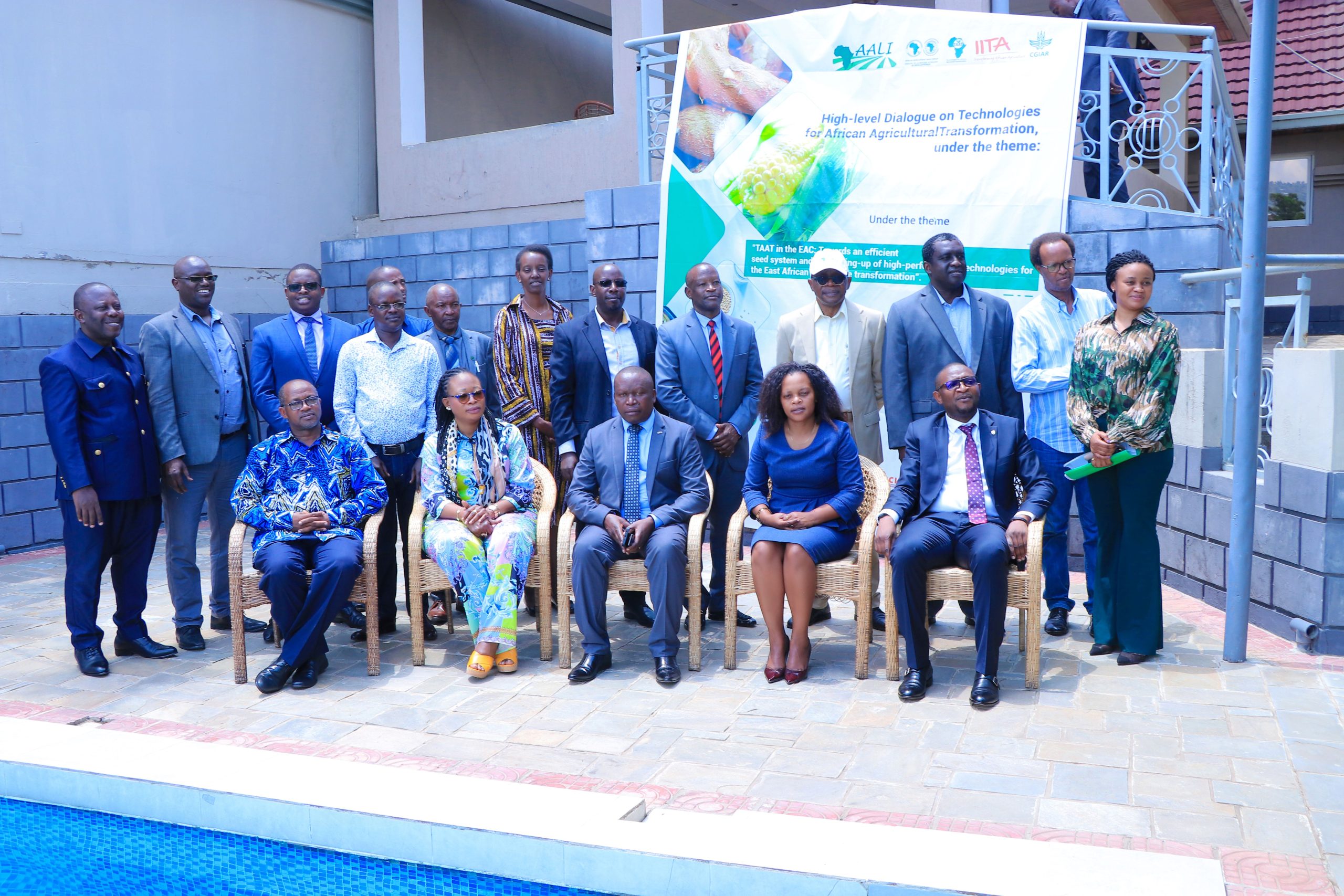As part of its mission to coordinate strategies and transfer agricultural technologies for the good governance of agricultural policies in African countries and regions, AALI, in collaboration with IITA, held a high-level dialogue in Bujumbura on November 10 on high-performance agricultural technologies that can help improve farmers’ living standards and the seed sector in the East African Community (EAC).
This dialogue was organized within the framework of the TAAT Project “Technologies for African Agricultural Transformation,” financed by the African Development Bank (ADB), under the theme “TAAT in the EAC: towards an efficient seed system and the scaling-up of high-performance technologies.” Five countries were represented, namely Burundi, Rwanda, Uganda, Tanzania, and Kenya. Several representatives of other donor organizations, including the World Bank, the International Fund for Agricultural Development (IFAD), and the AfDB, also took part.

This dialogue consisted of (i) identifying interventions that the TAAT program could bring to current and future agricultural transformation initiatives requiring high-performance technologies and best practices to increase the productivity of smallholder farmers in the EAC and (ii) bringing together all stakeholders in the development of the EAC agricultural sector to reflect on strategies for developing an improved and efficient seed system at the regional level.
Mr. Jean Paul Mitoga, the AfDB’s representative at the conference, asserted that a profound agricultural transformation in Africa can only take place through the combined efforts of the public sector, the private sector, and small and large African producers. This is why “the AfDB, an African institution and for Africa, has opted for the implementation of high-performance agricultural technologies to achieve the success of an efficient and sustainable agricultural sector combined with the efforts of all stakeholders,” Mr. Yarama, TAAT Coordinator for the East African region, added. In the same vein, Mr. Fidèle Garungu, Director General of Burundi’s Office for Seed Control and Certification, representing the Minister of Agriculture, praised the initiative led by AALI and its partners, considered it imperative to reflect together, and proposed practical and effective solutions to these challenges in the agricultural sector of each country and the whole EAC region. He was optimistic that the technologies promoted by TAAT would be adopted and popularized in his country.
Indeed, the East African Community and/or East Africa are two of the African regions with the most advanced agricultural policies. The African member countries of the EAC, with the exception of the Democratic Republic of Congo (DRC), which has just joined, have all had a seed law in place for over 10 years. However, despite the efforts made in terms of regulation, control strategy, and extension, these countries face similar challenges, notably the counterfeiting of seed varieties, insufficient production to meet demand and the needs of the population (and multiplier farmers), product quality that is not appreciated by the consumers, farmers’ reluctance to use improved seeds, stereotypes about the difference in quality between products grown using technology and those grown using traditional methods, the lack of mastery and/or use of digital tools by small-scale producers, etc.

To meet these challenges, participants put forward ideas and recommendations on updating the regional catalog of improved seed varieties, harmonizing regional regulations and guidelines, and setting up a regional platform. The latter brings together all the countries present and will be responsible for studying, evaluating, and proposing strategies, as well as monitoring the applicability of reforms to the agricultural technologies to be promoted in order to improve the system in the East African region.
In his words, Dr. Chris Okafor, AALI’s Managing Director, reassures us of AALI’s commitment to providing technical support and putting in place the necessary arrangements and conditions to enable this platform to successfully carry out the tasks assigned to it and achieve an efficient seed sector in East Africa. This is nothing less than its mission to redefine the African paradigm.

